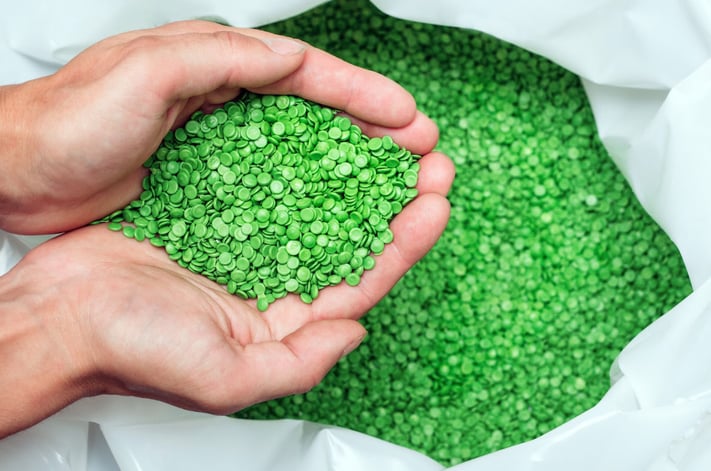
The overmolding process is indispensable for a myriad of today’s plastic products. Essentially, overmolding services allow us to combine multiple materials into a single complex design. And despite the inherent carbon footprint created by custom plastics manufacturing, overmolding can actually be the more efficient process compared to the alternative of producing and assembling multiple separate components.
Nevertheless, manufacturers throughout the industry are always looking for ways to make custom plastic molding services cleaner, greener, and more sustainable. AIM Processing is no exception – through clever design, expert material selection, and innovative process optimization, we find the leanest, most effective and least wasteful way to create every overmolded product that passes through our facility.
Sustainable Product Design for Manufacturability
One of the first major steps toward better sustainability is to design your overmolded products such that they can be produced as efficiently as possible. Designing your products for manufacturability requires careful consideration of both the end product and the production process we’ll use to create it.
As a result, we can minimize the amount of plastic materials used, including scrap and wasted materials, while also establishing a more sustainable manufacturing process. Then, we work alongside some of the best custom mold and tool makers in the industry to develop the perfect tooling for every job.
More Sustainable Overmolding Materials
A big part of better sustainability is the adoption of more eco-friendly plastic molding materials – especially ones that are biodegradable, recyclable, and/or renewable. For example, bio-plastics such as PLA and PHA are derived from vegetable oils, sugar cane, and other natural resources, reducing our dependance on the petroleum-based oils needed for most traditional plastics. When it comes to recycling, sustainable material options reduce our need for new resin production, which substantially cuts down on the carbon footprint at its source.
Manufacturing Process Optimization
Automation technology is also increasingly important to establishing sustainability in both injection molding and overmolding. Automated molding processes equal much higher efficiency, higher capacity, and less waste due to less manufacturing errors. Further, plastic injection molding often requires a “runner” to feed material into the part but is not a component of the finished product. If your product permits this “runner” to be ground up and fed back into the manufacturing process, there is near-zero waste. At AIM Processing, that means running 37 state-of-the-art presses on a 24/7 basis as needed to meet our customers’ high-volume and/or quick-turnaround requirements.
We strive to keep your project sustainable by keeping our services flexible – whether it’s a small run of overmolded parts or a full-scale production run. Our lights out manufacturing capability not only helps us achieve high-volume capacity, it allows us to deliver just-in-time manufacturing solutions. In terms of sustainability, just-in-time manufacturing means less wasted product as well as less ongoing waste in inventory and warehousing.
An American Injection Molding Company Offering Better Sustainability
One of the Denver, Colorado region’s leading injection molding companies since 1993, AIM Processing also specializes in plastic overmolding for a wide range of unique products. Our company is an ISO 9001:2015 registered American manufacturer committed to the ongoing sustainability of every project.

 SINCE 1993 MADE IN USA
SINCE 1993 MADE IN USA 
